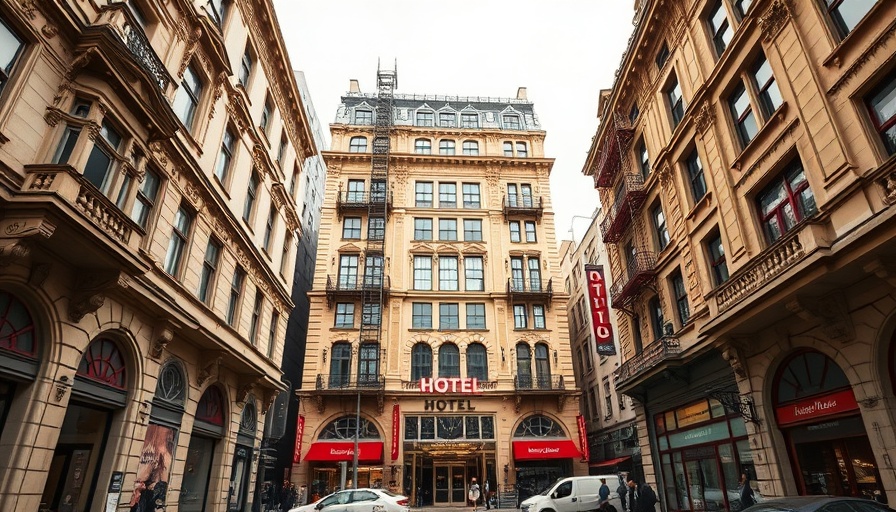
An Unseen Turnaround: The Mayflower Hotel Acquisition
In an unexpected twist within the fluctuating hotel market, a seasoned investor has acquired the Mayflower Hotel located in San Francisco's historic Union Square. Known for its vibrant atmosphere and high foot traffic, Union Square stands as a prime location for hospitality ventures. This acquisition comes on the heels of a significant trend where investors who previously sold off properties during the pandemic are now capitalizing on discounted real estate opportunities in the area.
The Investor's Story: From Selling to Buying
Having made headlines for his strategic exits amidst the COVID-19 pandemic, the investor recognized the unique value that the Mayflower Hotel holds. Not only has the hotel seen fluctuations in occupancy and revenue during the pandemic, but its central location makes it a prime candidate for revitalization. The investor's decision to acquire now signals a belief in recovery and a shift back to attractive investment opportunities within the hospitality sector.
Implications for the Hospitality Market
This transaction highlights a broader recovery trend in San Francisco’s hotel landscape. As demand begins to rebound, this acquisition might set a precedent for other investors wary of previously volatile conditions. As more hotels re-enter the market, competition may drive services and customer experiences to new heights.
The Future of Union Square Hotels
With a surge in interest from investors, the Union Square area is poised for an evolution that emphasizes hospitality trends aligned with luxury and unique experiences. After years of uncertainty and a sluggish recovery, the investment community is showing renewed confidence in San Francisco's ability to attract travel and hospitality revenue. The Mayflower Hotel acquisition may inspire further investment in the area, potentially leading to renovations and an upgrade in offerings for guests seeking upscale experiences.
Local Interest: What It Means for San Francisco and Beyond
This acquisition resonates not just with San Francisco locals but also with potential travelers. As tourism returns, local business owners, especially in the food and entertainment sectors, stand to benefit from increased foot traffic in the area. Moreover, the acquisition speaks to the larger theme of resilience in the hospitality industry, with investors keen to re-enter markets previously struck hard by the pandemic.
Considerations for Future Travelers
For travelers, this growing confidence in the hotel market means a chance to explore newly revitalized spaces. Many hotels, including the Mayflower, are likely to enhance their services, integrating safety measures alongside top-notch amenities to lure back guests. The hospitality industry's focus on quality experiences suggests that this may be the perfect time for both seasoned and new travelers to take advantage of fresh offerings blossoming across destinations.
Embracing Change: Community Response
The local community's pulse on this acquisition echoes optimism. As hotels prepare to reopen and invest in renovations, the impact could ripple through small businesses and local services. With an increase in foot traffic and engagements fueled by renewed visitor interest, businesses across sectors may find newfound opportunities for growth and collaboration. This creates an ecosystem where the hospitality industry thrives together with local commerce.
The Bigger Picture
This acquisition represents a fascinating moment in time, showcasing how adaptive the hospitality sector can be. It draws parallels to other markets where recovery was slow yet steady, showing that long-term viability rests on proactive investment and recovery strategies. As the Mayflower Hotel embarks on this new chapter, it symbolizes hope and resilience for a sector eagerly awaiting bustling crowds once more.
As travelers and locals alike watch this transformation unfold, one thing remains clear: the hospitality industry is not just bouncing back but is ready to soar. Investors are keenly aware that now is the time to act, and the choices they make today will shape the future of hospitality experiences for years to come.
 Add Row
Add Row  Add
Add 




 Add Row
Add Row  Add
Add 

Write A Comment